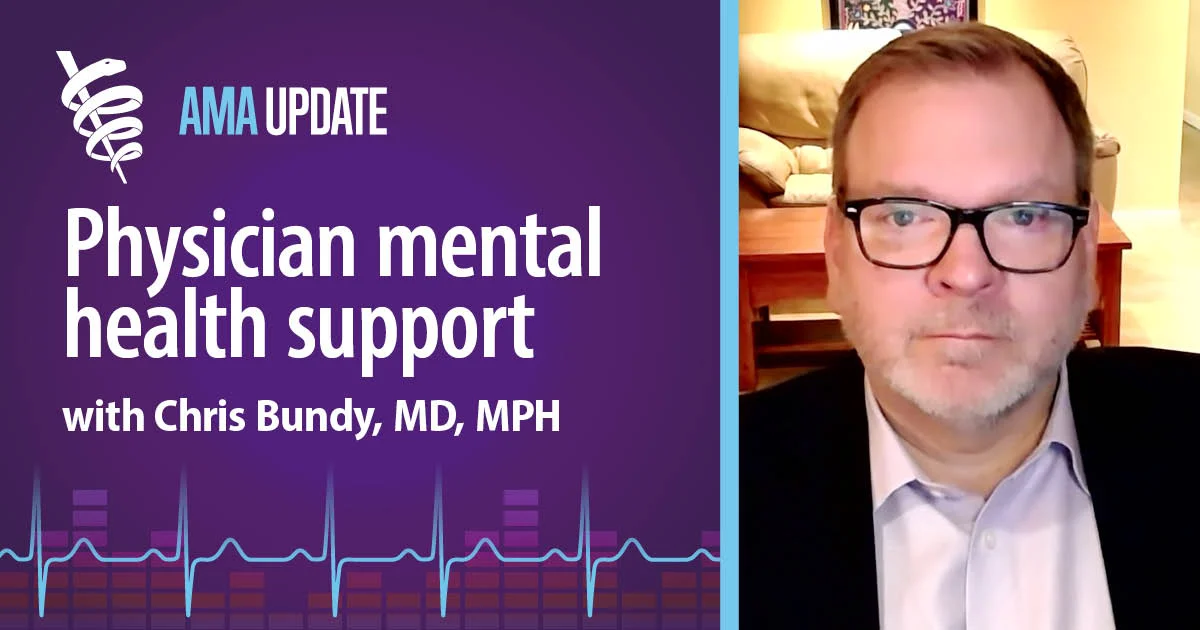In a recent episode of the AMA Update podcast, Dr. Chris Bundy, chief medical officer of the Federation of State Physician Health Programs, emphasized the critical need for physician wellness programs to support the mental health of medical professionals. As physician burnout rates reach alarming levels, these programs offer essential resources for doctors facing mental health challenges and substance use disorders.
The podcast highlights the evolution of physician health programs (PHPs) that originated from a 1974 AMA report titled “Sick Physician.” This report called for the establishment of confidential, non-disciplinary pathways for physicians to seek help without fear of repercussions. Today, nearly every state has a PHP, providing services tailored to address mental health issues, substance use, and even non-psychiatric medical conditions.
PHPs assist about 10,000 physicians annually, offering personalized support through comprehensive evaluations, treatment referrals, and structured follow-ups to ensure safe returns to practice. Dr. Bundy noted that PHP participants experience better recovery rates and lower professional liability risks compared to their peers who do not engage with these programs.
“Healthy physicians mean safer patient care,” Dr. Bundy stated, underscoring the link between physician well-being and patient safety. He encouraged medical associations to actively promote educational resources that reduce stigma surrounding mental health and substance use, urging physicians to seek help when needed.
Accessing a PHP is straightforward. Physicians can visit the Federation of State Physician Health Programs’ website, where they can find contact information for their local programs. Many state medical societies partner with PHPs, making it easier for physicians to reach out anonymously for support.
Despite progress, challenges remain. Dr. Bundy discussed the stigma embedded in credentialing applications, which often include invasive questions about mental health history that deter physicians from seeking help. Efforts are underway to revise these questions in several states to align with best practices that promote a non-discriminatory approach to health inquiries.
In Washington state, for instance, the licensing questions were updated in 2017 and 2022 to remove inquiries about past health issues, a change that has been positively received by physicians. Similar initiatives are being pursued in other states, aiming to create a supportive environment where physicians feel safe seeking help.
Dr. Bundy advises those in the medical field to engage with their local PHPs and learn about available resources. “It’s normal to be fearful, but asking for help is a courageous step,” he said, encouraging those who are hesitant to reach out for support.
To foster a healthier culture, Dr. Bundy advocates for proactive approaches, such as peer support models in medical schools and residency programs, which normalize the need for mental health resources. He believes that making access to these resources seamless will help reduce stigma and promote a culture of wellness among physicians.
In summary, the conversation on the AMA Update podcast highlights the urgent need for physician wellness programs to combat burnout and support mental health in the medical community. By removing barriers to care and fostering a supportive environment, healthcare organizations can ensure that physicians remain healthy and capable of providing safe patient care.



